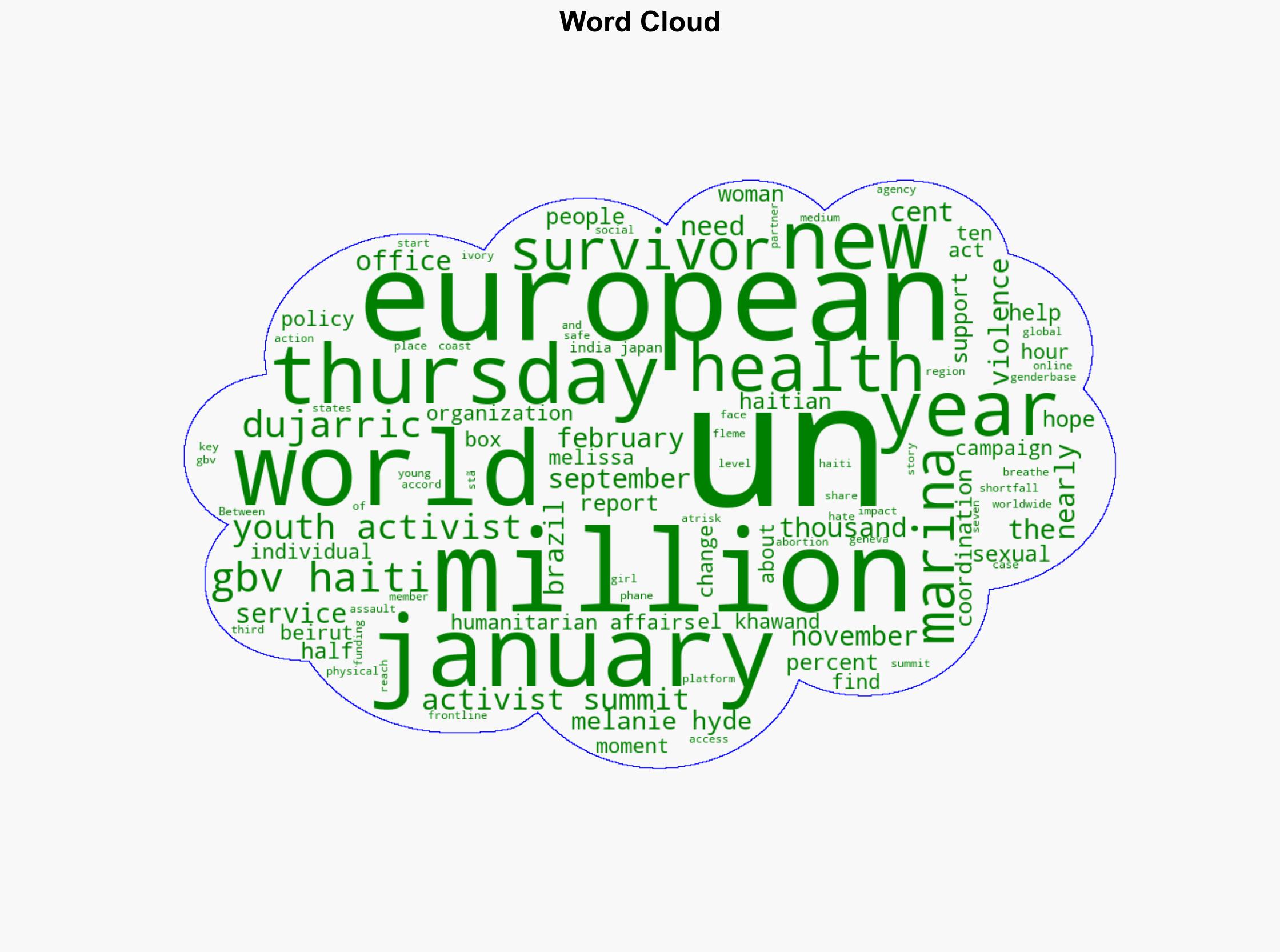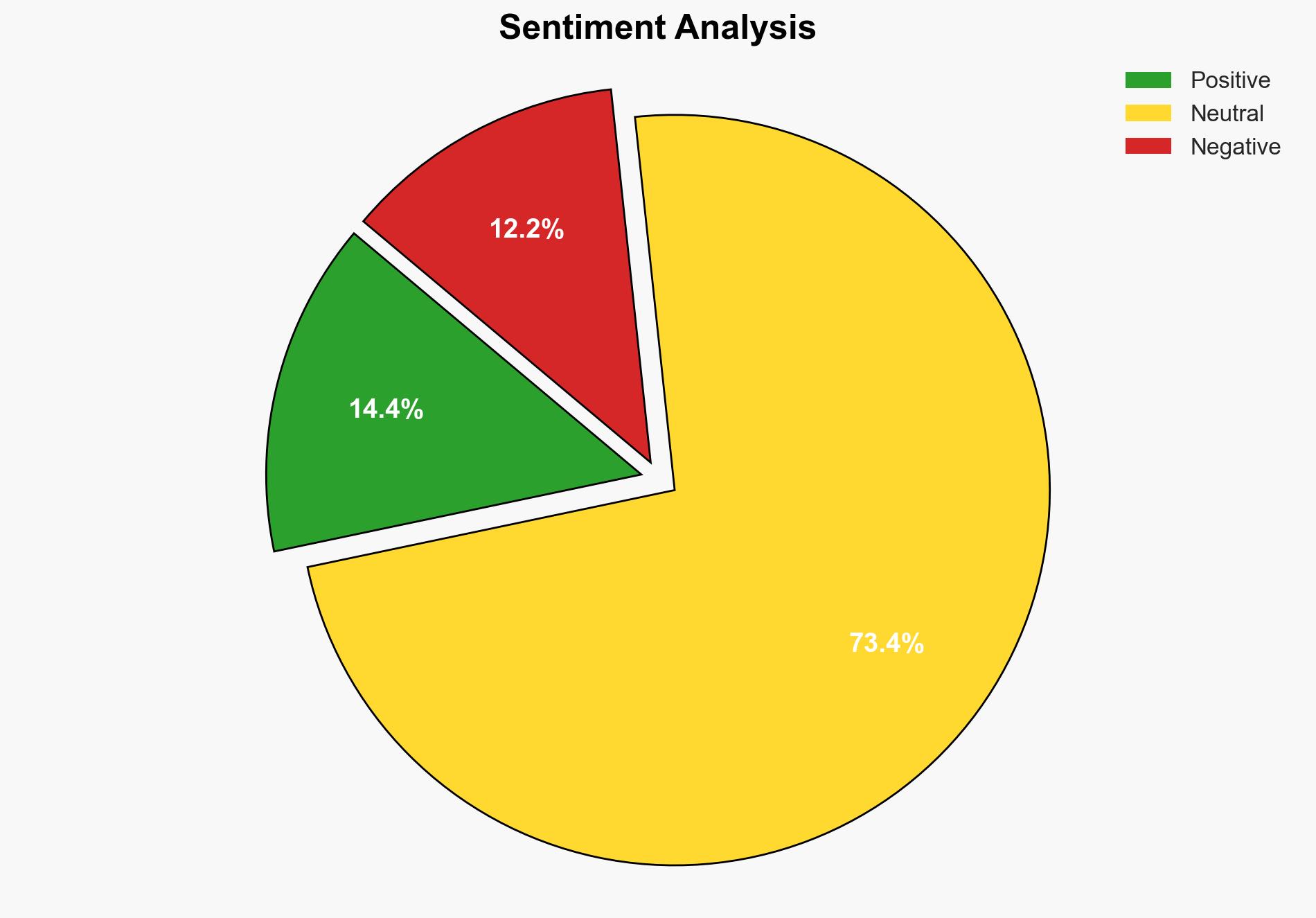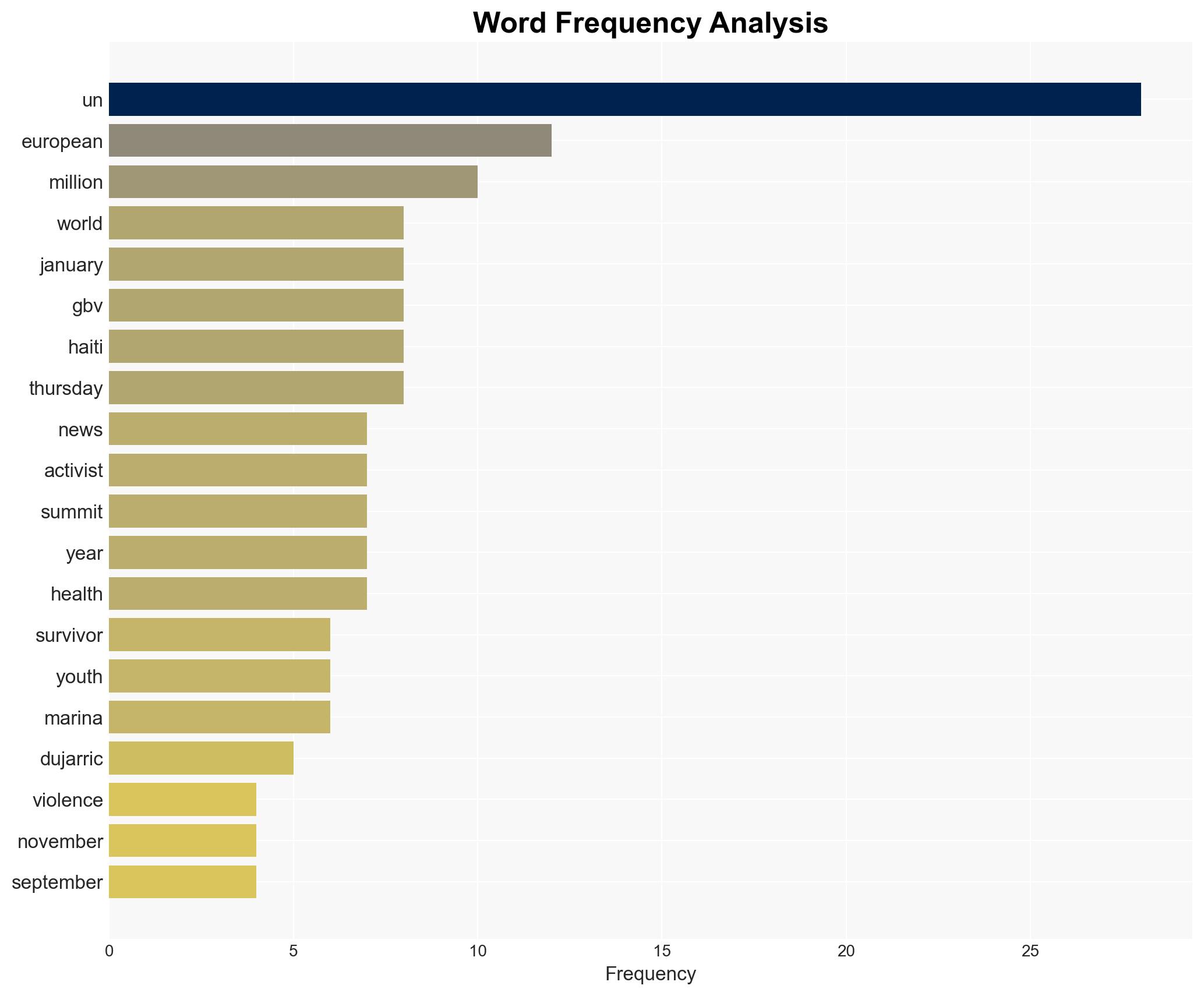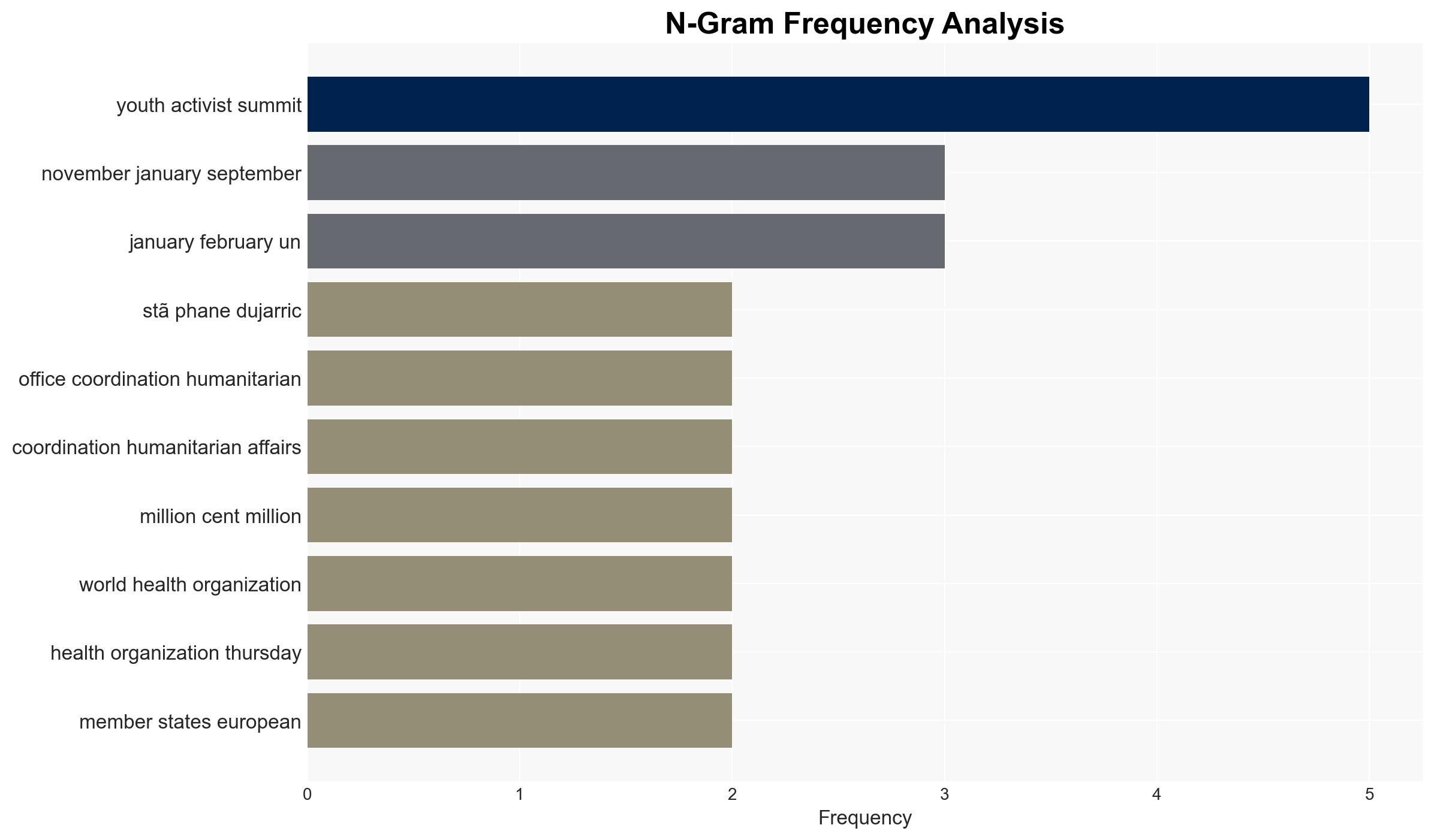World News in Brief Violence against Haitian women WHO alert over support for survivors worldwide Youth Activist Summit marks hope over hate – Globalsecurity.org
Published on: 2025-11-21
AI-powered OSINT brief from verified open sources. Automated NLP signal extraction with human verification. See our Methodology and Why WorldWideWatchers.
Intelligence Report:
1. BLUF (Bottom Line Up Front)
The strategic judgment is that the ongoing violence against women in Haiti, coupled with insufficient support systems, poses a significant humanitarian crisis. The most supported hypothesis is that the lack of funding and logistical challenges are major contributors to the inadequate response to gender-based violence (GBV) in Haiti. Recommended action includes increasing international funding and logistical support to improve access to essential services for survivors. Confidence Level: Moderate.
2. Competing Hypotheses
Hypothesis 1: The primary reason for the inadequate response to GBV in Haiti is the severe funding shortfall and logistical challenges faced by UN and partner organizations. This hypothesis is supported by the reported $13.5 million funding gap and the inability to reach targeted populations.
Hypothesis 2: The inadequate response is primarily due to systemic issues within the Haitian government and local institutions, which are unable to effectively coordinate and implement GBV interventions. This hypothesis considers potential inefficiencies and corruption within local governance structures.
Assessment: Hypothesis 1 is more likely given the explicit mention of funding gaps and logistical challenges in the source text. However, systemic issues within local governance cannot be entirely ruled out and may exacerbate the situation.
3. Key Assumptions and Red Flags
Assumptions: It is assumed that the reported funding gap is accurate and that logistical challenges are as severe as described. There is an assumption that international support is the primary solution.
Red Flags: Potential bias in reporting from UN sources, which may emphasize funding issues to solicit more aid. Lack of detailed information on local government efforts could indicate either a gap in reporting or an intentional omission.
4. Implications and Strategic Risks
The ongoing GBV crisis in Haiti could lead to increased social instability and further strain on humanitarian resources. There is a risk of escalating violence if survivors continue to lack access to essential services. This situation could also result in negative international perceptions of the Haitian government’s ability to manage internal crises, potentially affecting foreign aid and investment.
5. Recommendations and Outlook
- Actionable Steps: Advocate for increased international funding and logistical support to address the immediate needs of GBV survivors in Haiti. Encourage collaboration between international organizations and local government to improve service delivery.
- Best Scenario: Increased funding and improved coordination lead to enhanced support for GBV survivors, reducing violence and improving social stability.
- Worst Scenario: Continued funding shortfalls and logistical challenges exacerbate the crisis, leading to increased violence and social unrest.
- Most-likely Scenario: Incremental improvements in funding and logistics lead to gradual enhancement of support services, though challenges persist.
6. Key Individuals and Entities
Stéphane Dujarric: UN Spokesperson, providing critical data and insights on the situation.
Melanie Hyde: WHO representative, highlighting the need for survivor support systems.
7. Thematic Tags
Regional Focus, Regional Focus: Haiti, Gender-Based Violence, Humanitarian Crisis, International Aid
Structured Analytic Techniques Applied
- Causal Layered Analysis (CLA): Analyze events across surface happenings, systems, worldviews, and myths.
- Cross-Impact Simulation: Model ripple effects across neighboring states, conflicts, or economic dependencies.
- Scenario Generation: Explore divergent futures under varying assumptions to identify plausible paths.
Explore more:
Regional Focus Briefs ·
Daily Summary ·
Support us





